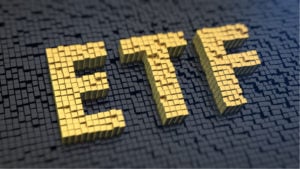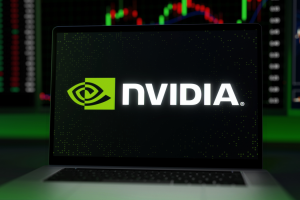
Both passive and active investors seem to have a growing appetite for shares of Nvidia (NASDAQ:NVDA). A select few may be running to the hills after the latest correction in NVDA stock.
That said, given the company’s envied positioning in the AI revolution and the likelihood that demand for all things AI stays overheated for many quarters (perhaps even years) to come, the latest correction feels like an opportunity, a shot to get NVDA stock at a 10% discount to its peak.
It’s unclear how large a discount dip-buyers will ultimately get with NVDA stock now that it’s on the mend, up around 5% in the first three trading sessions of July. Regardless, Nvidia is a wonderful company and a star growth play, the likes of which we may not see again for a long, long time.
In a prior piece, I highlighted three Nvidia-heavy ETFs that deserve the attention of growth-seeking passive investors. In this piece, we’ll check out another trio worth stashing on the radar for those seeking exposure to Nvidia and its less-appreciated peer group.
iShares Expanded Tech Sector ETF (IGM)

The iShares Expanded Tech Sector ETF (NYSEARCA:IGM) may not be the most popular tech-flavored ETF out there, but it’s still intriguing for those looking to play the broader tech sector with a slight tilt toward the U.S.-based tech titans like Nvidia. As you’d imagine, the ETF is heavy on the Magnificent Seven, semiconductor plays and enterprise software-as-a-service (SaaS) stocks.
Notably, IGM shares have outperformed the Nasdaq 100 for 2024 thus far, surging more than 32% year to date, about 10% more than the Nasdaq 100. And it’s not just Nvidia to thank for the relative boost, as NVDA stock comprises just 7.85% of the ETF at writing.
Perhaps the biggest reason to opt for IGM over the Nasdaq 100 is high-tech from largest holding to smallest. The ETF boasts a huge weighting in the tech plays we know and love but also tiny positions in smaller high-tech innovators, some of which investors have never considered.
Perhaps the IGM’s small holdings in lesser-loved up-and-comers make it so special. With a 0.41% expense ratio, it isn’t exactly the most competitively priced ETF.
Fidelity MSCI Information Technology Index ETF (FTEC)

The Fidelity MSCI Information Technology Index ETF (NYSEARCA:FTEC) is one of my favorite Fidelity ETF products in the lineup. With a trusted name in Fidelity backing the ETF, investors have much to love about FTEC shares over competing products.
For those who aren’t big fans of the recent rebalancing of the Technology Select Sector SPDR Fund (NYSEARCA:XLK), which put NVDA stock’s weight ahead of Apple (NASDAQ:AAPL), perhaps the FTEC is more your cup of tea. It still has a heavy weight (14.8%) on Nvidia, but also has a high weighting in Apple and Microsoft (NASDAQ:MSFT), with 16.3% and 16.8% weights, respectively.
For fans of the big three in the $3 trillion club, FTEC is a great one-stop-shop option. However, perhaps the number-one reason for preferring FTEC over all else is the incredibly low expense ratio of 0.08%. Such rock-bottom fees are the beauty of reaching for an index ETF over a more actively managed one.
Invesco QQQ Trust (QQQM)

Speaking of low fees, I’d be remiss if I didn’t mention Invesco Nasdaq 100 ETF (NASDAQ:QQQM). It’s the cheaper brother of the Nasdaq QQQ ETF (NASDAQ:QQQ), and I’d argue it’s better if you seek exposure to the Nasdaq 100. The QQQM “mini” shares boast a 0.15% total expense ratio, making it one of the most cost-effective options to expose yourself to the tech- and Nvidia-heavy ETF.
Of course, there’s always one catch with the QQQM relative to the pricier QQQ: it’s not as liquid. That means selling at your desired price will be tougher, especially if the stock market is nosediving and sellers are selling in a panic.
If you’re a long-term investor, the lower expense ratio is probably worth lower liquidity. Either way, fans of the Nasdaq 100, which isn’t all tech, should look to the QQQM for the added cost savings versus QQQ and many other tech-centric ETFs. It’s a great deal for passive investors.
On the date of publication, Joey Frenette held shares of Apple and Microsoft. The opinions expressed in this article are those of the writer, subject to the InvestorPlace.com Publishing Guidelines.
On the date of publication, the responsible editor did not have (either directly or indirectly) any positions in the securities mentioned in this article.







